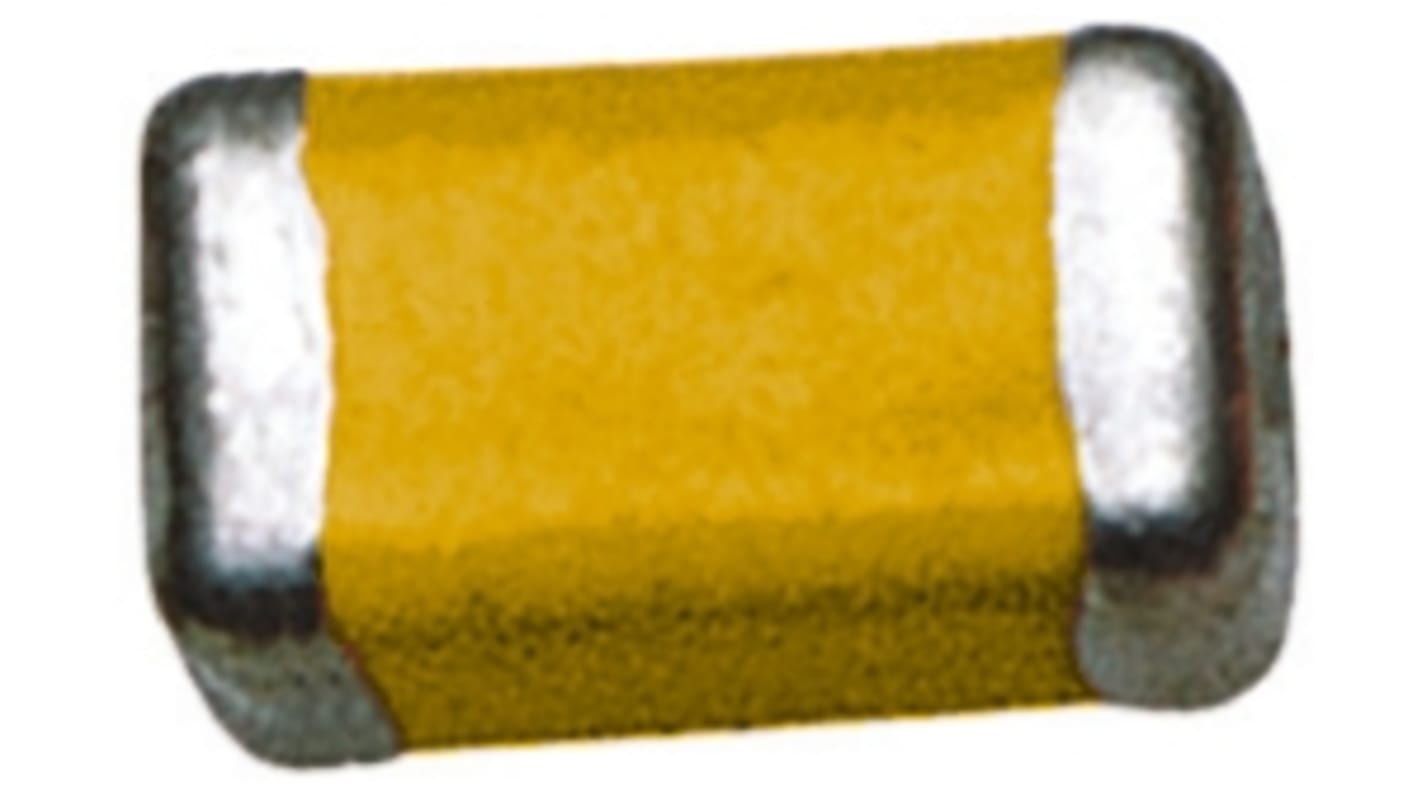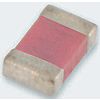TDK 1μF MLCC, 25V dc V, ±10% , SMD
- RS Stock No.:
- 921-4138
- Mfr. Part No.:
- C2012X7R1E105K125AB
- Brand:
- TDK

Currently unavailable
We don’t know if this item will be back in stock, it is being discontinued by the manufacturer.
Alternative
This product is not currently available. Here is our alternative recommendation.
Each (In a Pack of 100)
£0.084
(exc. VAT)
£0.101
(inc. VAT)
- RS Stock No.:
- 921-4138
- Mfr. Part No.:
- C2012X7R1E105K125AB
- Brand:
- TDK
Specifications
Legislation and Compliance
Product Details
Find similar products by selecting one or more attributes.
Select all | Attribute | Value |
|---|---|---|
| Brand | TDK | |
| Capacitance | 1µF | |
| Voltage | 25V dc | |
| Package/Case | 0805 (2012M) | |
| Mounting Type | Surface Mount | |
| Dielectric | X7R | |
| Tolerance | ±10% | |
| Dimensions | 2 x 1.25 x 1.25mm | |
| Length | 2mm | |
| Depth | 1.25mm | |
| Height | 1.25mm | |
| Series | C | |
| Terminal Type | Surface Mount | |
| Minimum Operating Temperature | -55°C | |
| Maximum Operating Temperature | +125°C | |
Select all | ||
|---|---|---|
Brand TDK | ||
Capacitance 1µF | ||
Voltage 25V dc | ||
Package/Case 0805 (2012M) | ||
Mounting Type Surface Mount | ||
Dielectric X7R | ||
Tolerance ±10% | ||
Dimensions 2 x 1.25 x 1.25mm | ||
Length 2mm | ||
Depth 1.25mm | ||
Height 1.25mm | ||
Series C | ||
Terminal Type Surface Mount | ||
Minimum Operating Temperature -55°C | ||
Maximum Operating Temperature +125°C | ||
- COO (Country of Origin):
- JP
TDK C Type 0805 Series C0G, X6S, X7R, X7S, X7T, X8R, Y5V Dielectric
TDK C Series of general purpose multilayer ceramic chip capacitors suited for high frequency and high density type power suppliers.
Features and Benefits:
High capacitance through precision technologies that enable the use of multiple thinner ceramic dielectric layers
A monolithic structure ensures superior mechanical strength and reliability
Low ESL and excellent frequency characteristics allow for a circuit design that closely conforms to theoretical values
Low self-heating and high ripple resistance due to low ESR
A monolithic structure ensures superior mechanical strength and reliability
Low ESL and excellent frequency characteristics allow for a circuit design that closely conforms to theoretical values
Low self-heating and high ripple resistance due to low ESR
Applications:
Commercial Grade for general applications including
General electronic equipment; Mobile communication equipment; Power supply circuit; Office automation equipment; TV, LED displays; Servers, PCs, Notebooks, Tablets
General electronic equipment; Mobile communication equipment; Power supply circuit; Office automation equipment; TV, LED displays; Servers, PCs, Notebooks, Tablets
0805 Range
Nickel barrier terminations covered with a layer of plated Tin (NiSn). Applications include mobile phones, video and tuner designs, COG/NPO is the most popular formulation of the "temperature compensating", EIA Class I ceramic materials, X7R, X5R formulations are called "temperature stable" ceramics and fall into the EIA Class II materials, Y5V, Z5U formulations are for general purpose use in a limited temperature range, EIA Class II materials; these characteristics are ideal for decoupling applications.

